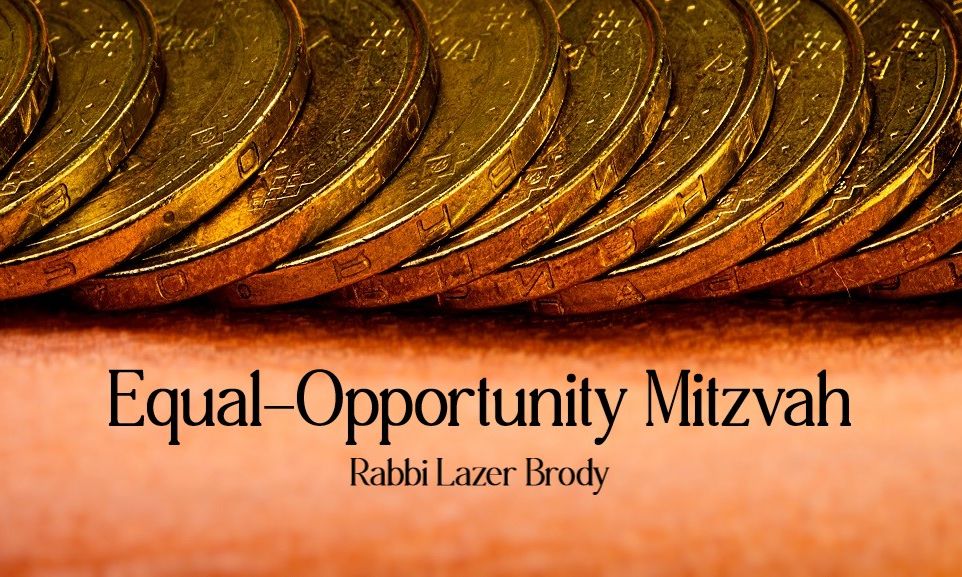
Equal-Opportunity Mitzvah
Parshat Shekalim: Are some people are more advantaged than others? The Torah says no, for it and the mitzva of the half shekel are equal opportunities...

The Gemara talks about equal opportunity in the following story (tractate Yoma, 35b), where a rich man, a poor man, and a evil person are being tried in the Heavenly Court after the termination of their life on earth:
The Court asks the poor man, “Why didn’t you engage in Torah learning?”
The poor man replies, “I was busy trying to eke out a living.”
The Court reprimands him and asks, “Were you more poverty-stricken than Hillel?”
Hillel would work all day long for one trepik (ancient shekel, worth about three dollars); he’d give half the shekel to the gatekeeper of the Hall of Study, and use the other half for his family’s livelihood. One day, he couldn’t find a way to earn his daily shekel, so the gatekeeper wouldn’t let him enter the Hall of Study. He went up on the roof and prostrated himself on the skylight so that he could hear the living words of G-d from the mouths of Shmaya and Avtalion. This was Friday afternoon in the middle of Tevet (January). Snow fell from the sky. At daybreak the next morning, Shmaya said to Avtalion, “Avtalion my brother, every day, the Hall of Study is illuminated at this time. Today, it’s dark. Perhaps there are heavy clouds outside?” The looked up and saw the silhouette of a body in the skylight. They went up on the roof and found the body buried under three cubits (approximately 1.5 meters) of snow. They rescued him, revived and washed him, and sat him in front of the fireplace. They said that such an individual is certainly worthy of violating the Sabbath in order to save him.
Then, the Heavenly Court summons the rich man and asks him why he didn’t engage in Torah learning during 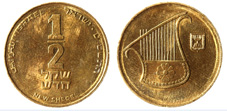 his lifetime. When the rich man answers that he was too busy with the many assets that he had to manage, the Court reprimands him and asks, “Were you more wealthier and with more assets than Rabbi Eliezer ben Charsoum?”
his lifetime. When the rich man answers that he was too busy with the many assets that he had to manage, the Court reprimands him and asks, “Were you more wealthier and with more assets than Rabbi Eliezer ben Charsoum?”
Rabbi Eliezer ben Charsoum inherited a fortune from his father – 1,000 townships on land and 1,000 merchant ships at sea. Every day, he’d take a humble knapsack of flour on his shoulder and roam from town to town and from country to country in order to learn Torah. Once, his employees found him, and without recognizing who he was, forced him to work. He asked them, “Please, let me go – I must learn Torah.” They answered, “We swear by the life of Eliezer ben Charsoum that we won’t let you go.” The employees never saw their employer, because he would sit and learn Torah all day long and all night long.
Finally, the Heavenly Court summons the evil person and asks, “Sinner, why didn’t you engage in Torah learning?”
The sinner answers, “I was very handsome and my evil inclination would get the best of me.”
The Court reprimands him and asks, “Were you more handsome than Yosef the Tzaddik?”
Daily, Potiphar’s wife tried to entice Yosef the Tzaddik. She was stunning and she would change clothes several times a day trying to tempt him. She threatened that if he doesn’t give in to her, she’ll have him jailed. He said, “Hashem frees the prisoners.” She threatened to crush him. He said, “Hashem straightens the bent.” She threatened to gouge his eyes out. He shrugged and said, “Hashem gives sight to the blind.” She offered him 1,000 bars of solid gold to be with her; he refused to be with her in this world or in the next world.
The Gemara concludes and says, “Hillel obligates the poor, Rabbi Eliezer ben Charsoum obligates the rich, and Yosef the Tzaddik obligates the evil ones.” Torah, as this Gemara lesson teaches, is an equal-opportunity mitzva, available to anyone, regardless of his relative advantage or disadvantage.
The two main functions of a Jew are Torah and avodah, or Divine service. Without our Holy Temple, avodah is prayer. But in the time of our Holy Temple, avodah centers around the daily sacrificial offerings. Avodah too is an equal opportunity mitzva, as we learn from the specific mitzva of the half shekel.
Every year during the month of Adar, each adult male from age 20 up would give a half shekel. This was for the purpose of buying sacrificial animals for the Holy Temple for the coming year. That way, every single household in Israel had a share in the holy sacrifices, the avoda of the Holy Temple. The Torah specifically commands that the rich man shall not give more and the poor man shall not give less. This mitzva, called the machtzit hashekel, the mitzva of giving the half shekel, obligated everyone. To donate through Chut shel Chessed Institutions, click here.
Everyone can and must participate in the mitzva of giving the half shekel just as everyone can and must participate in Torah learning. The Torah and avoda, which today is Torah and prayer, are equal-opportunity mitzvot that show how Judaism doesn’t have an elite or aristocracy. Everyone has equal opportunity to climb as high as he or she desires. Happy Adar!




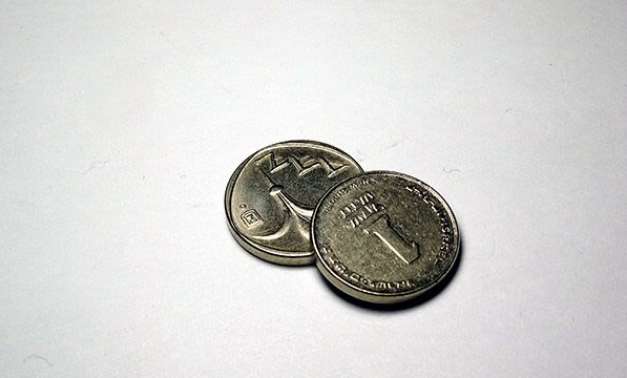
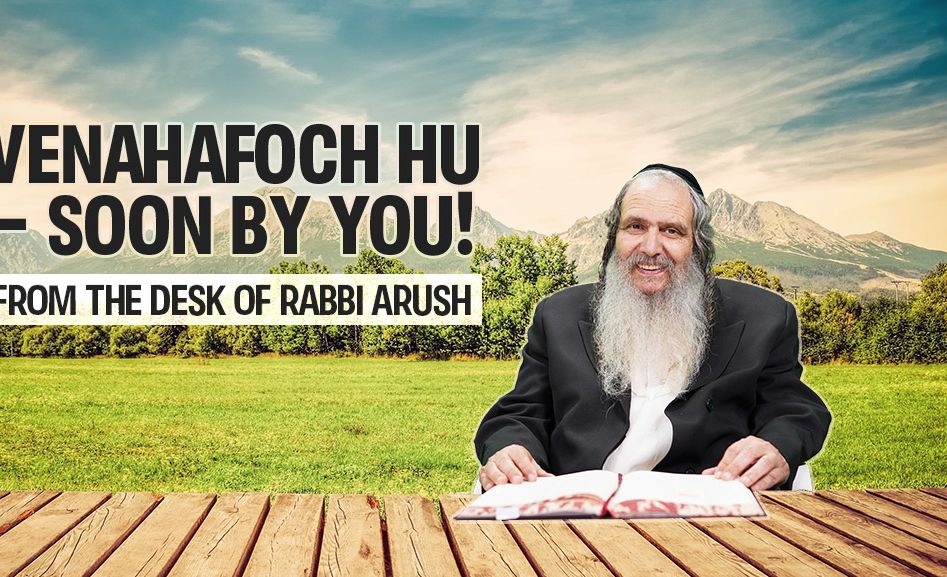
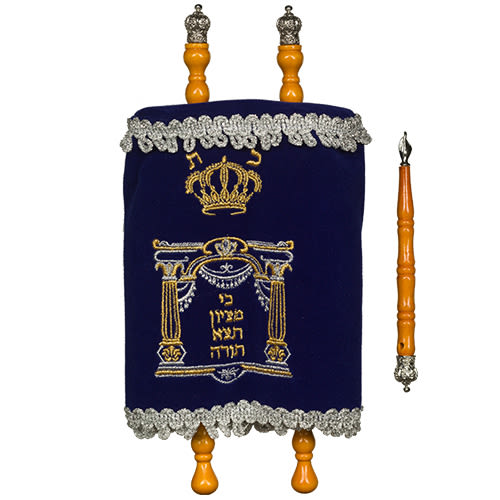
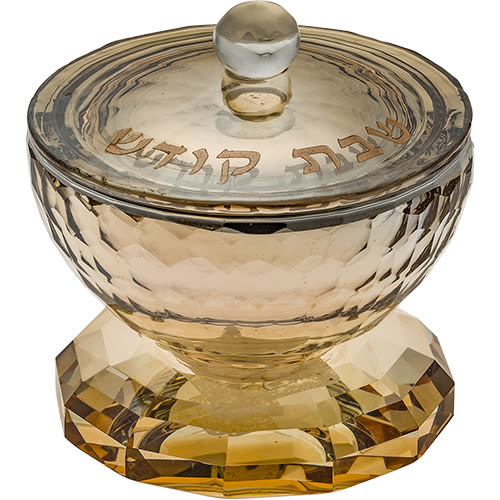



3/01/2019
Thank You!
Very grateful for this week. No kne is above or below. It is our choices that define on which level we stand. Thank You!
3/01/2019
Very grateful for this week. No kne is above or below. It is our choices that define on which level we stand. Thank You!
2/23/2014
Climb as one! In the desert, the Children of Israel moved together. So, how are we supposed to climb until everyone is climbing together? I mean, who can start up the mountain if their brother is drowning? I hope every Jew finds their true spiritual guide with the Light of Emuna from the books and css, so we can climb as one!